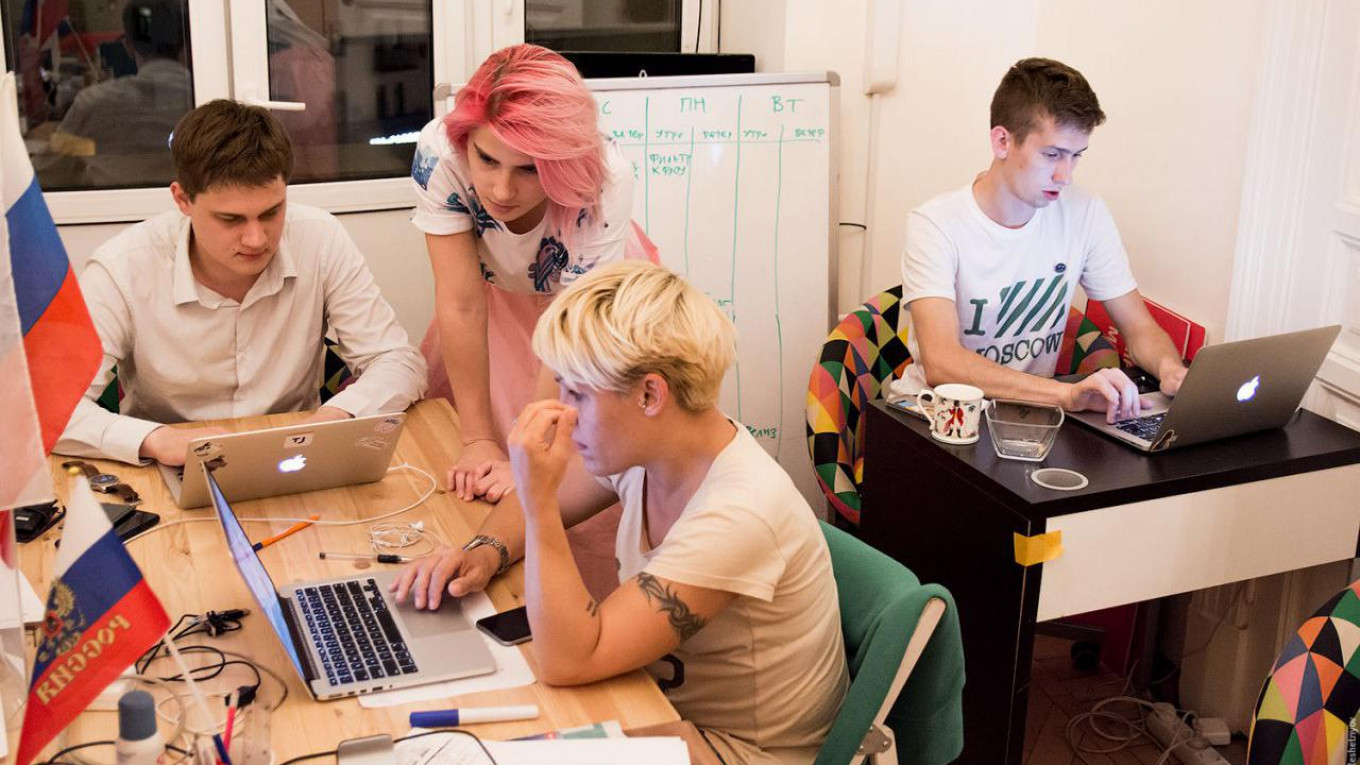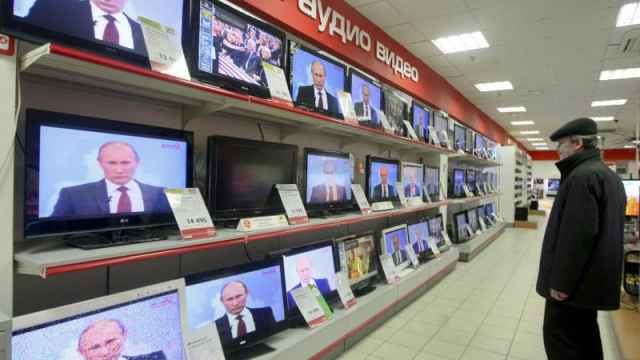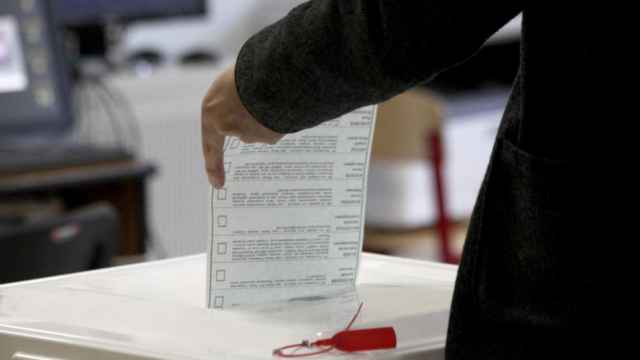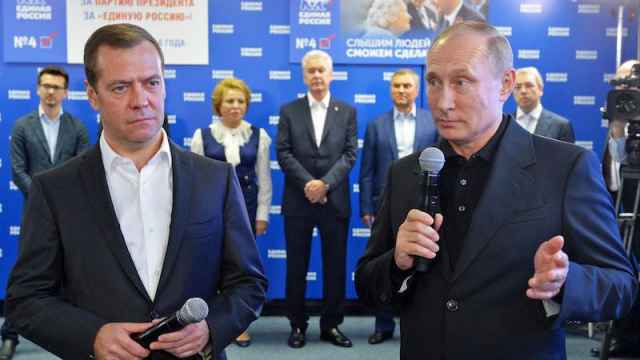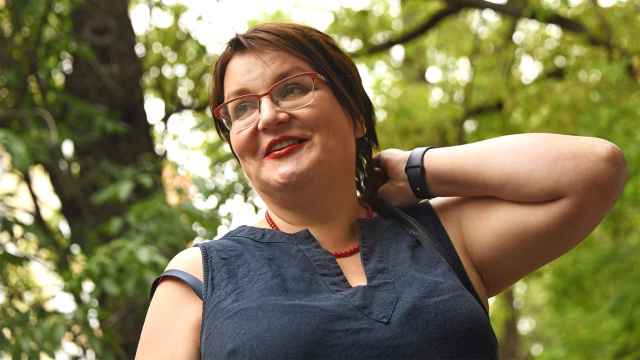Wedged between City Hall and the Kremlin, those who cross the doorway of this spacious apartment on Moscow’s busy Tverskaya Street face a grilling.
“No Putinists, Stalinists or supporters of the annexation of Crimea,” campaign chief Anna Kuznetsova warns. “And maybe also not those who oppose paid parking,” she adds as an afterthought.
With its high ceilings and large windows, the apartment would have once housed a high-ranking member of the Soviet nomenklatura. But for the past five months, it has been the “Gudkov headquarters” of a grassroots campaign which has injected new energy into an election that has traditionally inspired little interest.
More than 7,000 candidates will compete for 1,502 seats in municipal elections in Moscow on Sept.10. And Kuznetsova’s team of so-called "United Democrats" have helped put 1,000 of those candidates on the ballot.
With President Vladimir Putin expected to seek reelection in March and mayoral elections in Moscow next September, the team sees the municipal poll as the first step in a battle to overturn Russia’s political landscape.
A novel idea
The idea was born out of partial failure.
Until last year, opposition politician Dmitry Gudkov was the only independent voice in a Russian parliament dominated by pro-Kremlin parties. But when he failed to win reelection, he and his campaign manager Maxim Katz found they had instead won a majority on the local council of Moscow’s Shchukino district, beating mostly pro-government nominees.
If they could win there, they thought, perhaps they could do it again across the city.
So they brought in Vitaly Shkliarov, a political consultant who worked on the campaign of U.S. presidential hopeful Bernie Sanders, and decided to build something alien to Russia’s top-down political tradition — a grassroots movement.
“We want to change the political paradigm, the entire culture,” says Shkliarov. “Politics should be accessible to regular people, not just a group of insiders from party X, or some rich oligarch. It starts from your own home area.”
It was uncharted territory, says Kuznetsova. “In the West, it’s normal for political campaigns to have access to huge databases of supporters, including phone numbers, email addresses, everything. We are only starting to collect this information.”
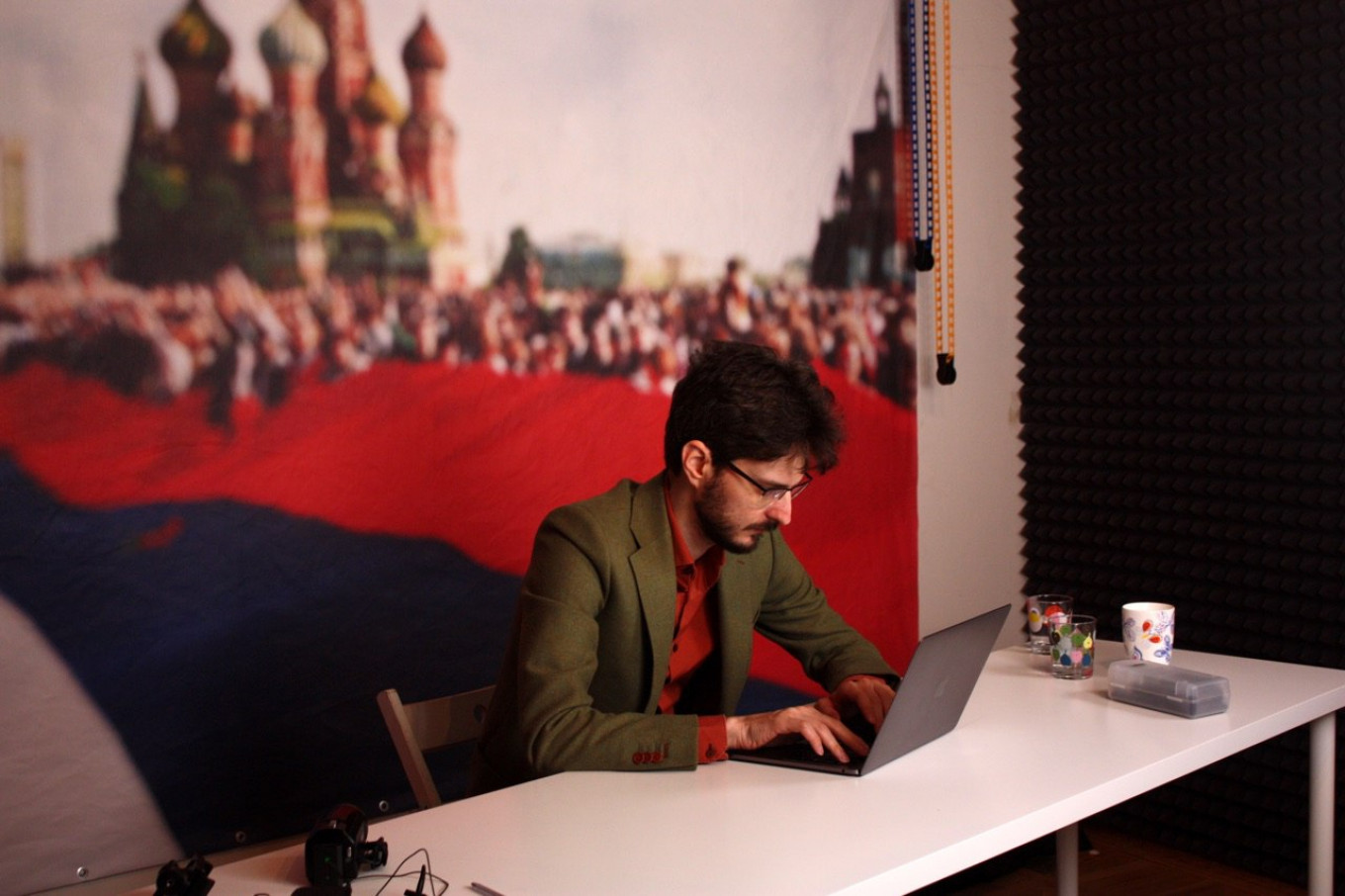
Most important, however, was to cut through red tape.
The process of registering as a candidate in any Russian election is infamously complicated, with even the tiniest discrepancies in applications used as grounds to disqualify candidates altogether. Even for some of the most prominent opposition politicians, it is a stumbling block they can’t overcome.
Political Uber
Technology provided the answer.
“We live in the 21st century, where you can order a taxi from a smartphone, and anyone can become a taxi driver,” Shkliarov says. “This is the first ever Russian political Uber, a project where thousands of independent candidates can take part in the election.”
The campaign team of some 50 members designed a step-by-step online checklist to help aspiring candidates work through the mountain of paperwork required to register with the elections committee.
They provided instructions on how to set up a new bank account, helped with fundraising, and supplied leaflets and campaign materials. The candidates were given advice on how to conduct a door-to-door campaign and convince largely apolitical Muscovites to come out to vote.
“The procedure to register is designed so no ordinary person can pass,” says Kuznetsova. “We turned it into a quest: press ‘Next’ and you’re a candidate.”
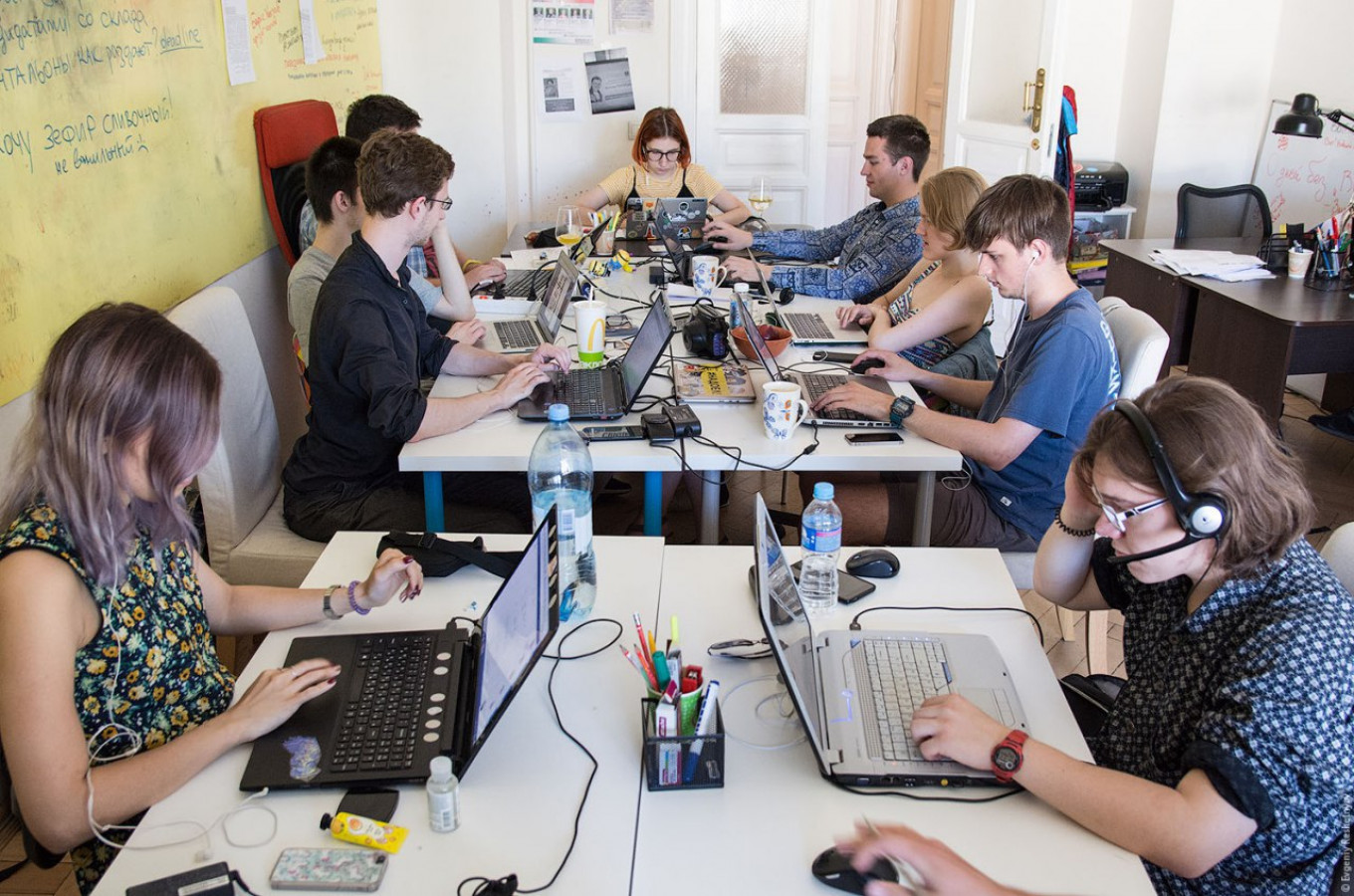
The campaign sifted through some 3,000 applications from the public to choose 1,000 candidates — most of them political newcomers. The successful candidates either run as independents, or on the ticket of the opposition party Yabloko.
The numbers have been a breakthrough for the opposition. At the last municipal elections, in 2012, Yabloko fielded around 30 candidates. This time that number is 930, with 700 of those having been put forward by Gudkov.
“We’ve opened a door to politics for millions of people,” says Shkliarov. “A mini-revolution has happened.”
A 'flashlight in darkness
Municipal elections traditionally attract little attention in Russia because local councils are seen as powerless, mainly tasked with rubber stamping policies on beautification and the local budget.
But municipal deputies can have an impact, says political scientist Yekaterina Schulmann. “Although they have little power, they have access to information.”
“The city authorities prefer to remain in the shadows: the facts are concealed, all attempts to investigate misdemeanors are put down hard-handedly,” Schulmann says. “Municipal deputies can act like flashlights, to expose what’s going on.”
“The Moscow authorities do many things Muscovites do not approve of, and history shows that even a single municipal deputy can become a celebrity quickly if they make it their cause to defend people’s rights,” Schulmann said.
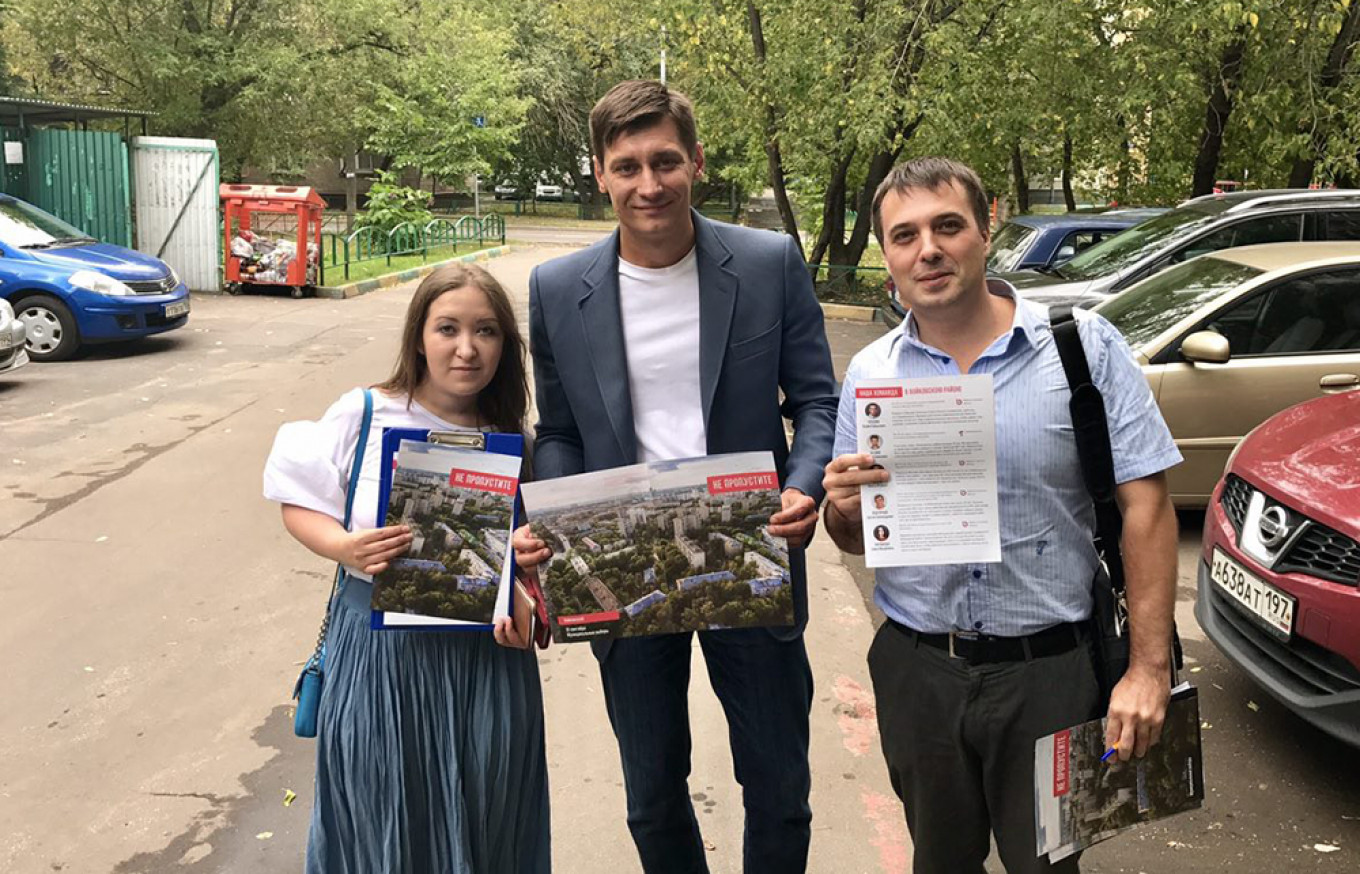
Nikita Kulikov, a 32-year-old engineer, is a case in point. His neighbors urged him to run after discovering their building would be demolished under the massive urban renewal program that provoked a series of mass public demonstrations earlier this year.
“The program pushed many Muscovites to pay more attention to problems to their homes and districts,” says Kulikov. “If you’d told me earlier this year I would go into politics, I wouldn’t have believed you. But as a deputy, I’ll have a chance to influence local decision-making.”
Another of Gudkov’s candidates, Anna Desyatova, a 40-year-old former teacher, says: “It is not like we will have much power. But we might be able to prevent bad decisions from happening.”
Most of the doors stayed shut as Desyatova went door-to-door through the gloomy corridors of the 400-meter long Soviet-era House of Nuclear Scientists in early September.
Some residents who opened their doors said they had received campaign materials from United Russia, the pro-Kremlin party that has a majority in the Russian State Duma. But most said they didn’t know the election was happening.
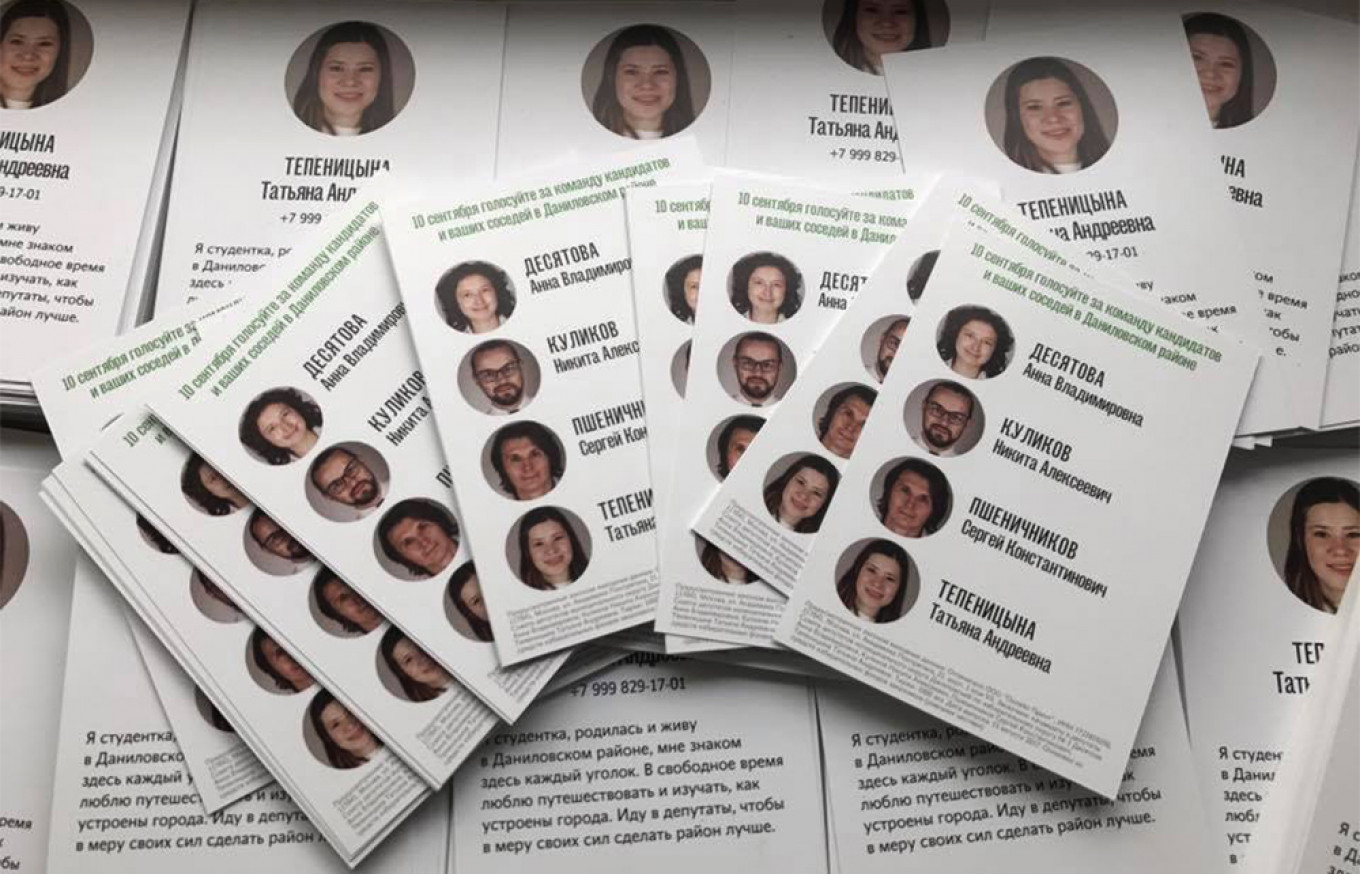
The authorities try to bring as little attention as possible to municipal elections to ensure a low turnout dominated by state sector workers who vote for pro-Kremlin candidates, says political scientist Alexander Kynev.
This year, the beginning of City Day festivities was timed to coincide with election day, says Schulmann. “That way, people will be celebrating and not voting,” she says.
Small revolution
But low turnout means a few votes can make a big difference.
Gudkov's "United Democrats" aim to have at least one candidate win in 120 out of 125 Moscow districts.
That will come in useful next year in September, when Gudkov himself runs for mayor. He will need the support of local councils to get on the ballot, and campaign infrastructure to win.
At the Tverskaya headquarters, Sunday's election is seen as a bellweather of that longer battle, and hopes are high.
“This is a small election, we don’t need that many votes,” says Kuznetsova. “This one can be won.”
A Message from The Moscow Times:
Dear readers,
We are facing unprecedented challenges. Russia's Prosecutor General's Office has designated The Moscow Times as an "undesirable" organization, criminalizing our work and putting our staff at risk of prosecution. This follows our earlier unjust labeling as a "foreign agent."
These actions are direct attempts to silence independent journalism in Russia. The authorities claim our work "discredits the decisions of the Russian leadership." We see things differently: we strive to provide accurate, unbiased reporting on Russia.
We, the journalists of The Moscow Times, refuse to be silenced. But to continue our work, we need your help.
Your support, no matter how small, makes a world of difference. If you can, please support us monthly starting from just $2. It's quick to set up, and every contribution makes a significant impact.
By supporting The Moscow Times, you're defending open, independent journalism in the face of repression. Thank you for standing with us.
Remind me later.


